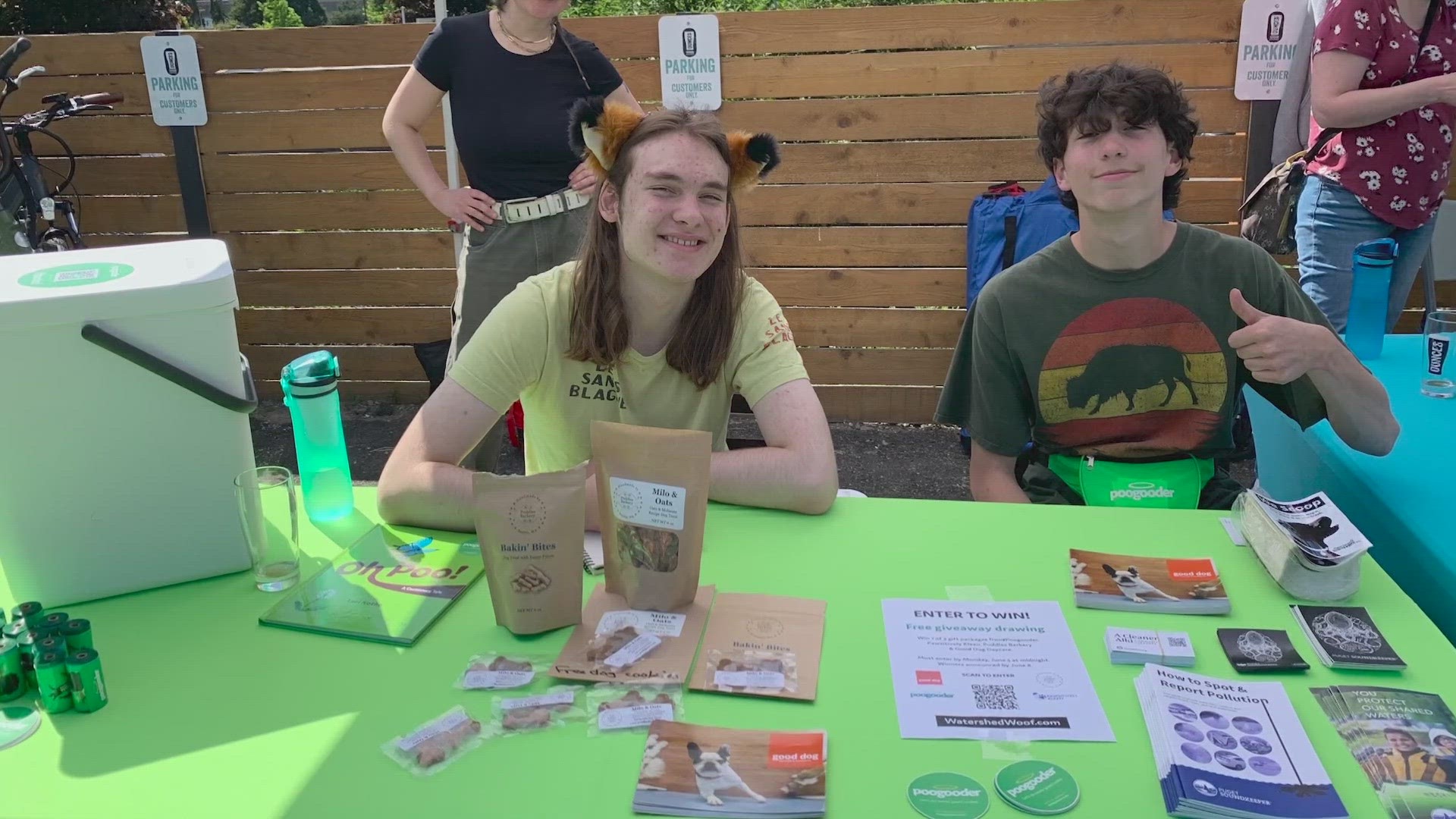SEATTLE — A sophomore at Maritime High School in Des Moines is using his influence to help boost a grassroots movement to “help end wayward dog poo.”
Mac Callahan attends Maritime High School and wanted to make a difference with his ninth-grade student-led impact project. His focus is on preventing pollution in the Duwamish watershed, and he decided to amplify the efforts of a West Seattle project to reduce the amount of dog poop that ends up in our storm drains.
“This was most intriguing to me because it’s such an unknown problem,” said Callahan. “What people don’t realize is that it’s not just a nuisance to step on but dog poop left of the ground is actually a major contributor to the damage of our watershed.”
Lori Kothe knows all about the issue and actually wrote about it in a children’s book inspired by interactions with her daughter. “Oh Poo! A cautionary tale” is a lighthearted story about a boy who loves his dog but hates to pick up the poo. He learns that every poo has a story and it’s up to him to help break the cycle of pollution.
“Where we live, stormwater is a huge issue and when it rains that dog poop goes right into our storm drains and into our local waterbodies untreated,” said Kothe.
Polluted stormwater – the rainwater that runs off our streets – is the leading toxic threat to Puget Sound.
Kothe admitted she never expected to be the “dog poop” lady but a few real-life missteps and messy situations led to some research, and that’s when Kothe organized and launched PooGooder. The idea is based on local residents who sign up to host a PooGooder bin along the sidewalk so proper disposal options are more available. Dozens of bins are located in neighborhoods throughout West Seattle where the project launched.
“Don’t throw your bags in compost. Even if they’re in a compostable bag,” said Kothe.
Dog poop isn’t compostable. Seattle Public Utilities’ compost facilities can’t safely compost dog poo because it requires a higher heat process to kill pathogens. Dog poo actually contaminates the surroundings and is too acidic to serve as fertilizer so it should be disposed of in a tied bag that you toss in the trash. Landfills are designed to prevent harmful dog poo contaminants from leeching into the soil and water.
Kothe says PooGooder found some new momentum thanks to the efforts of Callahan who made a video to highlight the issue in a way that will speak to other students and anyone who isn’t aware about the dramatic impacts those doggy deposits can have on our watershed. Callahan wrote a script and produced an educational video that demonstrates how
dog poo left on the ground in West Seattle can pollute urban streams like Longfellow Creek that flow into the Duwamish River and Puget Sound.
“I found out that the pollution even affect coho salmon in our local creek and the fish lose the ability to swim when they come in to contact with the polluted water,” said Callahan.
He also used some basic math to demonstrate the sheer volume of potential pollution. Estimates have 50,000 pounds of pet waste accumulating each day in Seattle, which Callahan said is 18.25 million pounds of pet waste per year.
Safe and proper disposal every single time is an ambitious goal but the focus of passionate volunteers and a local student who says he’ll continue his work after the school year concludes.
You can learn more and join the cause on Father’s Day weekend as the “Watershed Woof” team will be on-site at the Morgan Junction Community festival on Sunday, June 18.
For more info and to take the Dog Poo quiz, you can visit Poogooder online.

